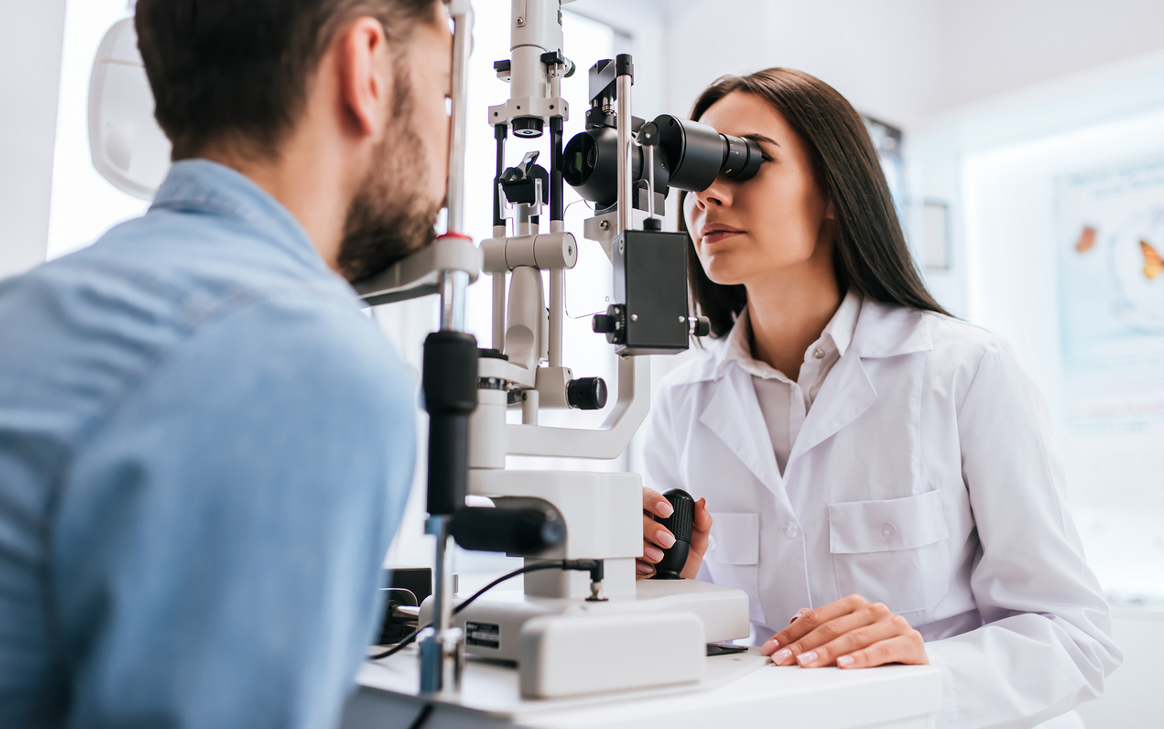In the complex tapestry of human health, the eyes play a critical role not just in vision but also as indicators of overall well-being. Health professionals have long established that systemic diseases, or those affecting the entire body, often manifest symptoms within the eyes. This makes regular eye exams an essential component of preventive healthcare. The connection between systemic and ocular health underscores the importance of comprehensive eye care in detecting conditions that may not yet present visible symptoms.

Diabetes and Ocular Health
One of the most common systemic conditions affecting eye health is diabetes. Over time, high blood sugar levels can damage the small blood vessels in the retina, leading to diabetic retinopathy, an eye condition that can cause vision loss or blindness if left untreated. What’s remarkable is that these changes can often be detected through a detailed eye exam before other diabetic symptoms become apparent, highlighting the importance of regular eye checkups for early intervention.
Hypertension: A Silent Threat to Vision
Hypertension, or high blood pressure, also has a direct impact on eye health. It can lead to changes in the retina known as hypertensive retinopathy. Signs such as narrowed arteries and retinal hemorrhages are often first observed during a routine eye exam. These indicators can serve as early warnings for cardiovascular issues, reinforcing how closely linked your systemic and ocular health truly are.
Autoimmune Disorders and Eye Symptoms
Autoimmune diseases such as lupus and rheumatoid arthritis affect multiple organs and tissues throughout the body, including the eyes. Conditions like uveitis, an inflammation of the middle layer of the eye, and chronic dry eye syndrome may be among the first signs of autoimmune activity. Detecting these early ocular symptoms allows eye care professionals to work collaboratively with other healthcare providers to manage both systemic and eye-related aspects of the condition effectively.
The Critical Role of Regular Eye Examinations
Despite the clear connection between systemic health and eye wellness, eye exams are often postponed until noticeable vision problems occur. This delay can lead to missed opportunities for early diagnosis of serious conditions. The American Academy of Ophthalmology recommends a baseline eye exam at age 40, with more frequent follow-ups for individuals with risk factors such as diabetes, hypertension, or autoimmune diseases. Regular eye exams are a powerful tool for early detection and prevention of complications.
Timely Diagnosis: A Window to Overall Well-being
Eye exams go beyond evaluating vision. They provide an invaluable, non-invasive way to assess the body’s blood vessels and nerves. Through these examinations, eye doctors can detect early signs of diabetes, hypertension, and other systemic diseases before symptoms appear elsewhere. This ability makes eye exams an essential component of preventive health care and can even be lifesaving by uncovering potential risks for conditions such as stroke and cardiovascular disease.
Schedule Your Comprehensive Eye Exam Today
At Opti-Care, we understand that your eyes provide a window into your overall health. Our state-of-the-art facility and dedicated professionals are here to deliver comprehensive eye care that helps detect early signs of systemic conditions. Whether you’re managing diabetes, hypertension, or autoimmune disorders, our thorough examinations can help monitor and protect both your vision and your well-being.
Located in Eldersburg, MD, we proudly serve patients across the surrounding communities. Don’t wait for symptoms to arise—be proactive about your eye health. Call us today at (410) 795-8670 or fill out our online form to schedule your comprehensive eye examination. Safeguard your vision and your overall health with expert care from Opti-Care.